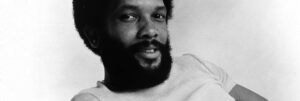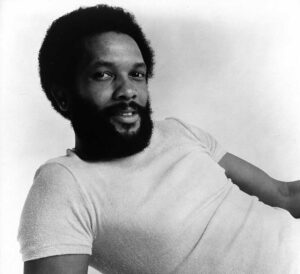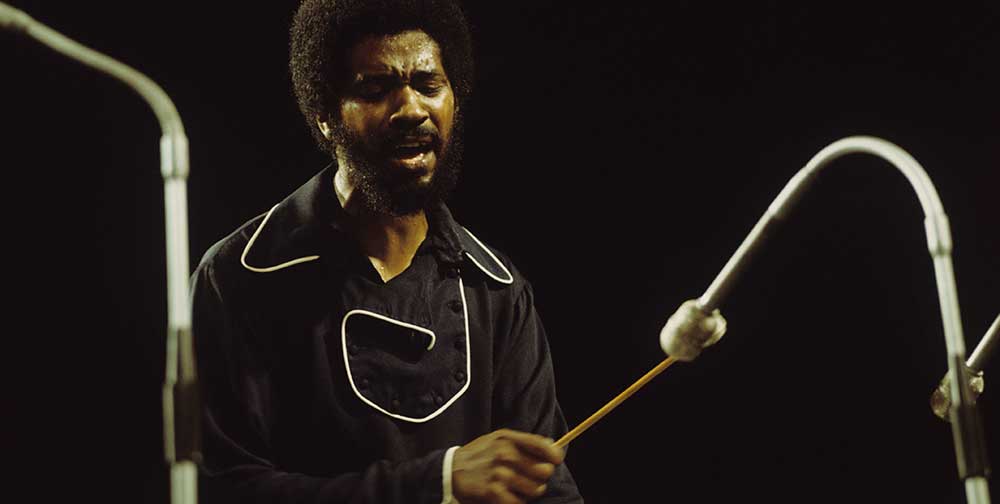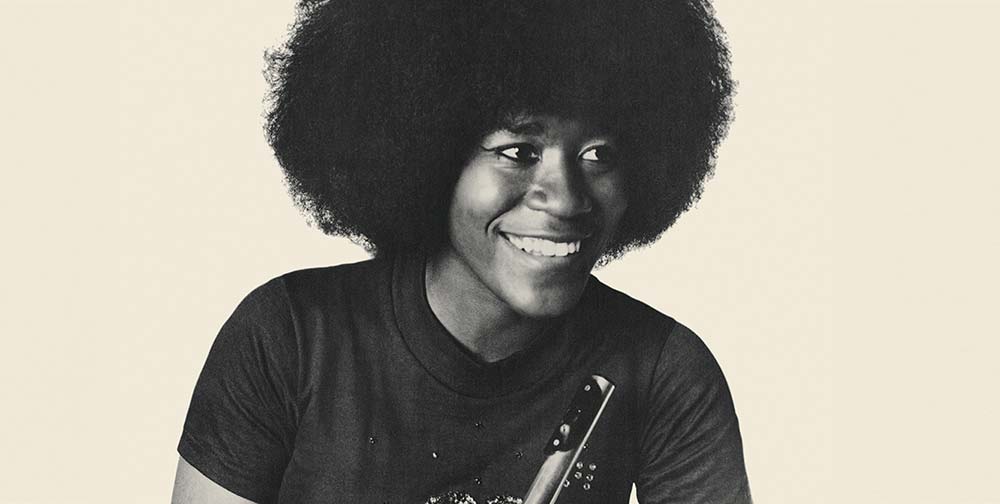If “straight-ahead” jazz had a very difficult time during the 1970s, fusion took many forms. While the likes of John McLaughlin, Chick Corea, Larry Coryell and Al Di Meola used the power of rock’n’roll to get their musical messages across, another group of pioneers – such as Ronnie and Hubert Laws, George Benson, Gary Bartz, Cannonball Adderley, Lonnie Liston Smith, Joe Sample, Eddie Harris, Les McCann and George Duke – mixed up their jazz with R’n’B, blues, Latin, funk and gospel.
And Roy Edward Ayers, who left us on 4 March 2025 at the age of 84. He brought some serious jazz chops to bear on a fascinating, almost genre-less discography which spanned seven decades. He was born and raised in Los Angeles and came from a musical family, his mother teaching him piano from an early age and no less than Lionel Hampton giving him a set of vibraphone mallets when he was just five. But Ayers didn’t start on that instrument properly until he was 17, quickly establishing himself on the West Coast jazz scene, getting prestigious gigs with Hampton Hawes, Chico Hamilton, Phineas Newborn and Herbie Mann.
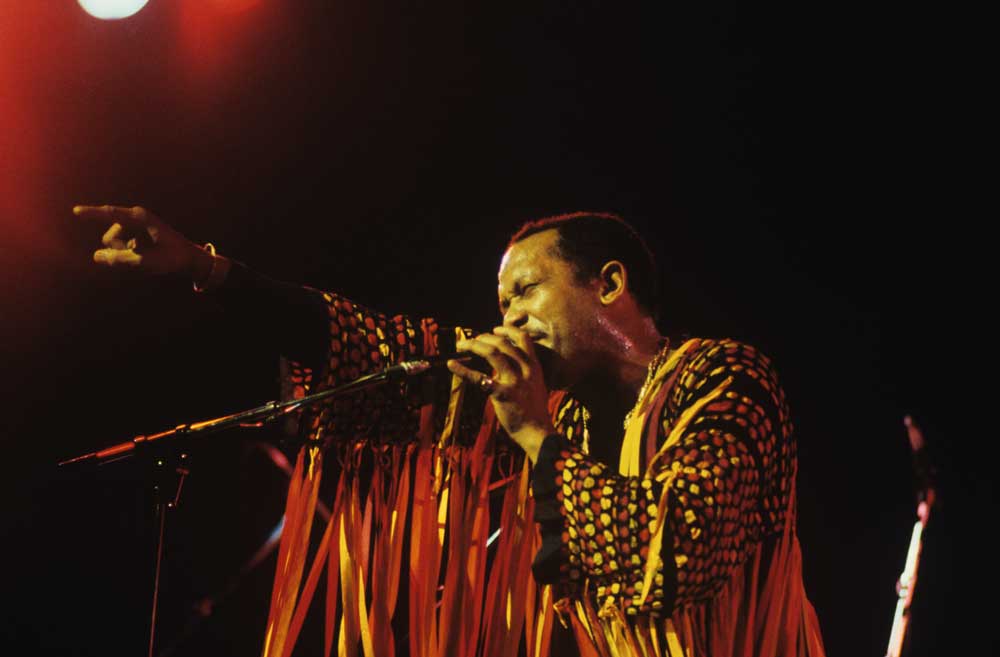
Early Ayers solo albums featured the likes of Herbie Hancock, Joe Henderson, Billy Cobham and Ron Carter, and he also dipped into the world of Blaxploitation soundtracks, but as the 1970s went on, settled on a sweet, uplifting, instantly recognisable sound, as harmonically-rich as Hancock’s albums of the era but with more catchy hooks (and vocals).
Released in May 1976 (in-between Benson’s “Breezin’” and Hancock’s “Secrets”), “Everybody Loves The Sunshine” is where it all came together for Ayers, a glorious fusion of witty lyrics, irresistible grooves, classic old-school synths and jazz harmony, reaching #10 on the US R’n’B charts/#51 pop.
Opener “Hey Uh What You Say Come On” is a genuinely psychedelic slice of discofied jazz/funk, showcasing a propulsive groove, hot Latin congas and even a harmonica solo, while “The Golden Road” is an intricately-arranged instrumental with a super-catchy melody. “Keep On Walking” sounds like something from Herbie’s “Man Child” with added vocals and “You And Me, My Love” is the closest Ayers’ music ever got to the stone funk of Parliament or Ohio Players.
“It Ain’t Your Sign It’s Your Mind” also has a hint of P-funk with its sloganeering title, killer half-time groove and heavy lead guitar from Ronnie Drayton, while “The Third Eye” is pure proto-neo-soul, showing the way forward for Jill Scott and D’Angelo. “People Of The World” features an electrifying performance from vocalist Debbie Darby and album closer “Lonesome Cowboy” is that rare thing – a comedy funk record.
And then there’s the iconic title track, Ayers’ tribute to the Los Angeles of his youth when smog alerts were the norm, featuring that famous synth riff performed by Philip Woo on an ARP Odyssey. The song has been sampled by everyone from Mary J Blige to Dr. Dre, and covered many times.
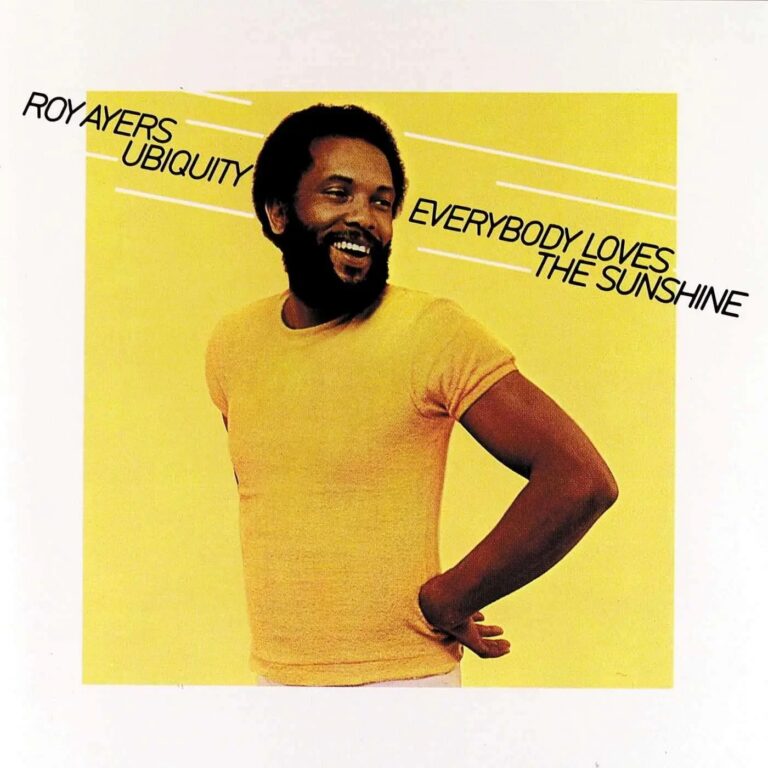
Roy Ayers Ubiquity Everybody Loves the Sunshine
Available to purchase from our US store.Ayers continued to release albums on Polydor and CBS, and, by the mid-1980s, his work was handed a major resurgence of interest courtesy of the UK rare groove/acid jazz scenes and famous London residencies at the Jazz Cafe and Ronnie Scott’s. His music became a huge influence on Jamiroquai, Brand New Heavies, Meshell Ndegeocello and D’Angelo, and he stayed relevant to the end, working with The Roots, Nuyorican Soul and Fela Kuti.
Matt Phillips is a London-based writer and musician whose work has appeared in Jazzwise, Classic Pop, Record Collector and The Oldie. He’s the author of “John McLaughlin: From Miles & Mahavishnu to the 4th Dimension” and “Level 42: Every Album, Every Song”.

